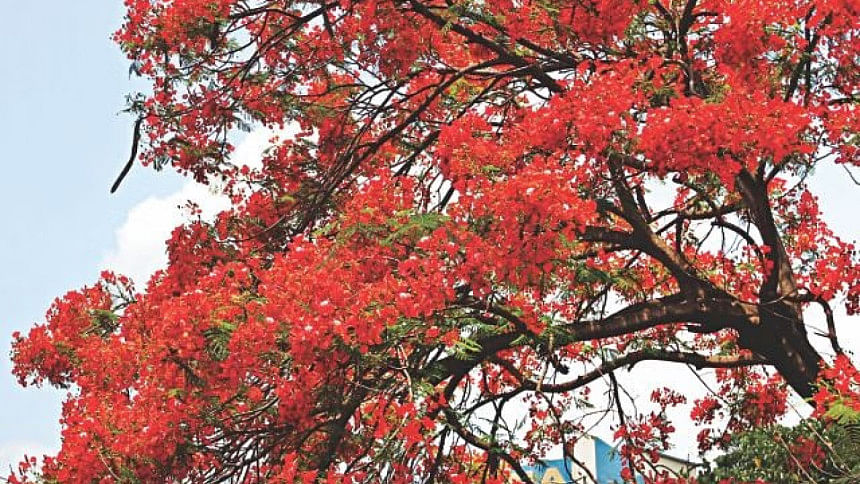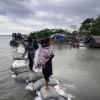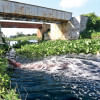World Environment Day: A story of memory and nature

I want to share a story about a little girl and a tree. A beautiful krishnachura tree, reaching the fourth floor balcony of a house and hiding it away from the urban sprawl, but not enough that moonlight couldn't peek through. A tree that was a friend to that little girl living on that balcony. In spring, the blooms would set ablaze in red in that little corner, and summers would be kinder to the girl as the shade of green would protect the space from the scorching sun. For years, that tree was a friend to her. The passing of the seasons and the changes in foliage were a part of her life, and they were friends—they both knew it.
And one day, just like that, the tree was gone. Cut down to make space for growth. More than a decade of kinship, torn apart in the span of a week.
It's the kind of loss that lingers with you. It's the kind of loss that is hard to explain to a child but must be understood by an adult. The numbness that comes up to cope with this loss is something that is reflected in all of us, wouldn't you say? Living in a concrete jungle that is Dhaka, I wonder: when did we stop caring for the small things that make life, life? When did we stop romanticising the rain? Was it when the entire city got flooded and the day was ruined on a monsoon day? When did we stop listening to the birds? Was it when they stopped coming to us, to an almost uninhabitable city? When did we stop caring for the soil we walk on? Was it when it started being covered in asphalt for so long that we forgot what lies beneath?
Amid all this, a story that sticks with me is a memory. A memory of Amena apa, whom I met in Noakhali a few years back. She invited my family for lunch, and I remember looking at her old glass jars of jams and jellies filled with seeds—some small, some big, but all sitting in airtight containers. She told me about how she stores seeds so that she does not forget how things are meant to taste. It was very normal for her community to store seeds. They would keep them as a contingency for when floods hit. Some would call this a resilience model, but to her it is just how things are.
"We look out for each other," she said. This is something I could never relate to. When I moved away from my maternal home, the houses I lived in, I never knew who my neighbours were. We sometimes met while getting out of our doors, in the garage, maybe sometimes walking on the road, but we never spoke. We never had that community feeling. It is also just how things are for most of us living in Dhaka.
Most things in Dhaka have little meaning to us. There are no parks to walk in, no water bodies to sit beside and forget our worries. No open space for children to learn about the birds that come in winter, no connection of the spirit to the earth. Our days are spent thinking about the next traffic jam, even thinking about how to survive the next day. Living in such fight-or-flight mode brings out apathy in us even more strongly.
Today is World Environment Day, a day that holds a reminder of all these thoughts. But it's also a day when I am reminded that, despite mass apathy towards the environment, there are still people who care.
There are people who protect our little spaces so that they can be green again, people who remember to be mindful enough to care. Their actions lie in quiet choices, in how we walk through the world, and with the world.
Those people remember the smell of wet earth after the first rain, how it makes them stop, just for a moment. They remember the silence that hung after a storm passed, when even the birds paused to breathe. They remember the thrill of picking a mango, sticky-handed, from a tree that had stood there longer than them. They let their memories be an anchor, and remind them of who they were, and who they still could be. They care, because they remember. They remember how the environment matters, and how we matter within it.
Now the question is, do you remember?
Raida A. K. Reza is doctoral researcher at United Nations University's Institute for Integrated Management of Material Fluxes and of Resources (UNU-FLORES), Leibniz Institute of Ecological Urban and Regional Development (IOER), and Technische Universität Dresden. She is the founder of Zero Waste Bangladesh (ZWBD).
Views expressed in this article are the author's own.
Follow The Daily Star Opinion on Facebook for the latest opinions, commentaries and analyses by experts and professionals. To contribute your article or letter to The Daily Star Opinion, see our guidelines for submission.

 For all latest news, follow The Daily Star's Google News channel.
For all latest news, follow The Daily Star's Google News channel. 










Comments